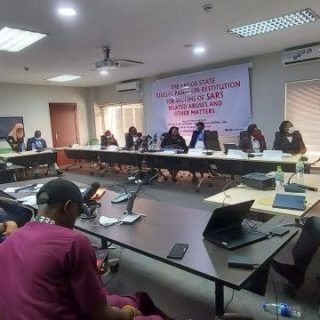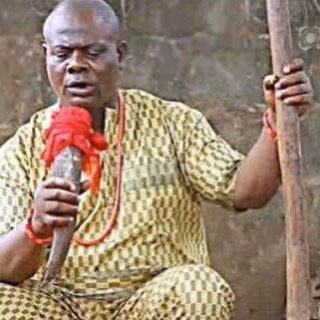Citizen is a column that explains how the government’s policies fucks citizens and how we can unfuck ourselves.
On Sunday, November 30th, 2020, many Nigerians woke up to the sad news that over 43 rice farmers in communities near Borno State, Nigeria, had been killed by Boko Haram insurgents.
While the government has claimed that Boko Haram has been “technically defeated”, the group continues to carry out terrorist attacks, especially in the northeastern parts of Nigeria.
But, as the Nigerian armed forces continue to fight the insurgent group, it is important to look at some of the policies that the government has employed in the fight against Boko Haram, including the Nigerian military’s “Operation Safe Corridor (OSC)”.
Operation Safe Corridor
In October 2015, the Federal Government of Nigeria, through the Defence Headquarters, announced the implementation of “Operation Safe Corridor” (OSC).
The goal of the programme was to rehabilitate Boko Haram militants and reintegrate them back into the society as law-abiding and productive citizens.
The programme employs the tools disarmament, demobilisation and reintegration (DDR) in incorporating Boko Haram militants back into the society.
What Is DDR?
Disarmament, demobilisation and reintegration (DDR) activities are part of the United Nations’ approach to peace building, disaster management and reconstruction.
According to the UN, the DDR is a formal peace building plan for countries emerging from armed conflict, and it is implemented so that different fighting sides can build confidence and security, which is important before recovery activities can begin.
In the case of Boko Haram, DDR was employed so as to ensure peace between the Nigerian military and the Boko Haram insurgents.
How Does “Operation Safe Corridor” Work?
“Operation Safe Corridor” was created similarly to the Niger Delta Amnesty programme launched by the Nigerian government in 2009, and it involved the setting up of a special facility where repentant terrorists who surrender their arms can get rehabilitated.
The programme promised to offer numerous opportunities and participants were scheduled for vocational training to ease their reintegration into the society.
Ultimately, Operation Safe Corridor promised de-radicalization, rehabilitation, and reintegration of repentant insurgents.
In March 2020, it was reported that over 606 Boko Haram members were ongoing rehabilitation through the “Operation Safe Corridor” programme. In January 2018, 95 Boko Haram terrorists were also reported
In 2019, over 150 Boko Haram terrorists were also reported to be re-integrated into society and we’re being taught vocational skills.
The Effectiveness of “Operation Safe Corridor”
Under the Niger Delta Amnesty Programme, militants were given 60 days to lay down their arms, after which they would receive employment, monthly stipends, vocational training, and they would be re-integrated into the society.
Over 30,000 militants and agitators gave up their weapons and were reintegrated back into the society through this program.
But “Operation Safe Corridor” seems not to have recorded the same level of success that the Niger Delta Presidential Amnesty Programme recorded in restoring peace to the community.
How Can “Operation Safe Corridor” Be Implemented?
Many stakeholders have given their opinions on how the government can implement “Operation Safe Corridor”. Some of these include:
- The roadmap for integrating defecting Boko Haram members must include all stakeholders like the government, NGOs, religious and traditional institutions and the the military.
- An effective communication system must be put in place between the communities, the government and the security agencies.
- Other perpetrators of violence and Boko Haram insurgents must be brought to justice. The program must not overshadow the fight against Boko Haram.
- The programme must emphasise community building, and the traditional institutions in the affected communities must be strengthened.
At the end of it all, it remains to be seen how effective “Operation Safe Corridor” will be in the fight against Boko Haram, given that terrorist attacks continue to happen in Nigeria.
We hope you’ve learned a thing or two about how to unfuck yourself when the Nigerian government moves mad. Check back every weekday for more Zikoko Citizen explainers.
COMPONENT NOT FOUND: donation




